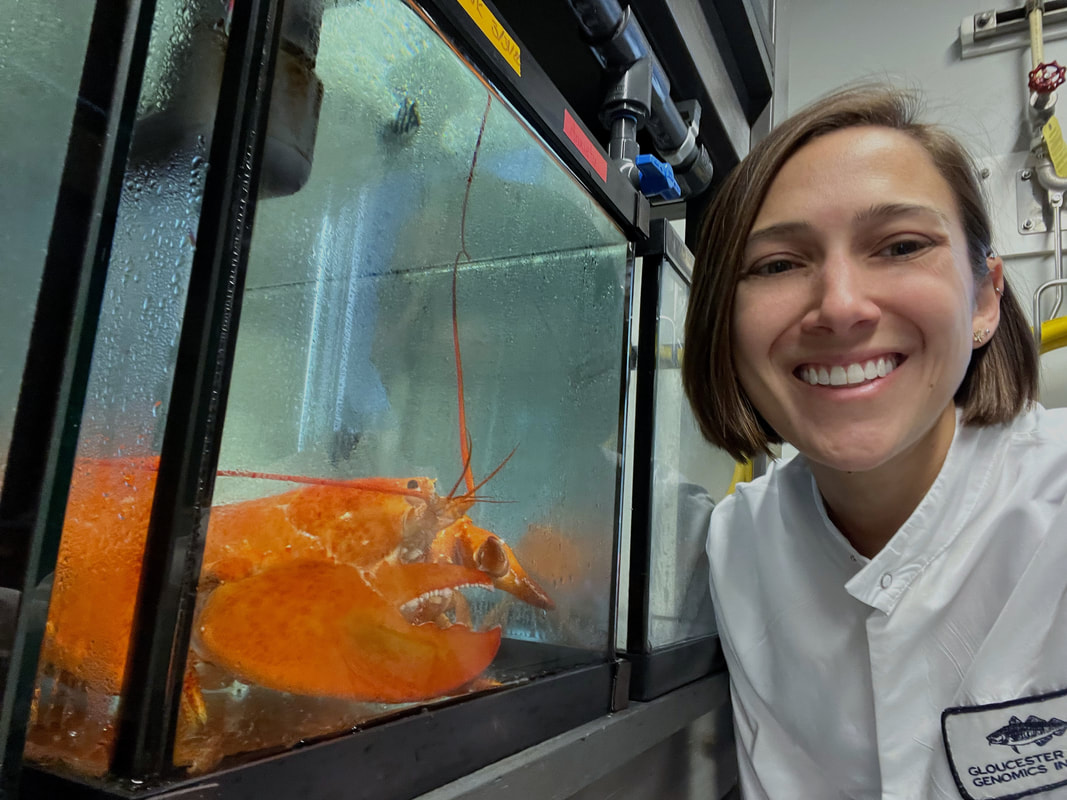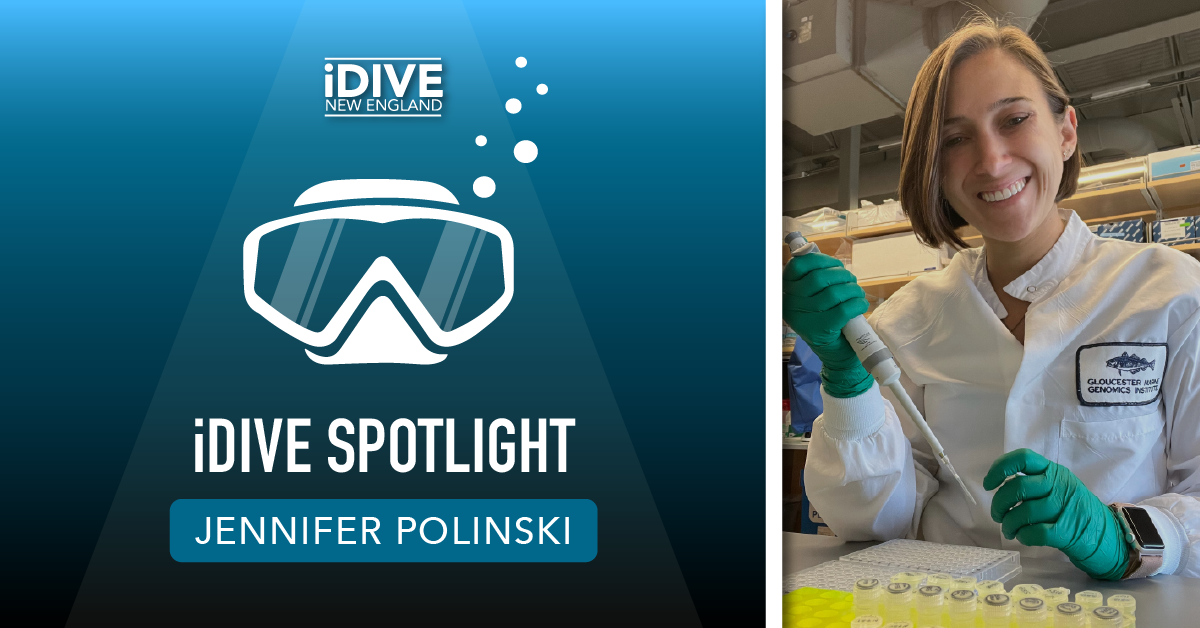Jennifer Polinski
Making Waves Across New England - Jennifer Polinski
Introducing iDive New England's spotlight, Jennifer Polinski, Senior Research Associate at Gloucester Marine Genomics Institute (GMGI) and New England SCUBA diver. We're excited to highlight her work as it is outstanding work but what's even cooler is that it involves marine life that divers see on a regular basis along the Northeast coast.
At GMGI, located right in Gloucester, MA, Jennifer is specializing in applying DNA sequencing technologies to marine organisms and their environments. She uses DNA sequencing to answer questions about marine life, some that divers in New England are familiar with such as the American Lobster and Jonah Crab. Even further, Jennifer Polinski has actually sequenced the genomes of the American lobster and Jonah crab. In doing so, she's shared valuable tools for studying population structure.
Jennifer has also studied long-live red sea urchins to uncover patterns of aging and genes that may contribute to longevity. Currently, a majority of her research focuses on ecosystem-wide biodiversity, using environmental DNA to characterize and monitor everything from the smallest bacteria to the largest whale.
Jennifer holds a MS in Marine Biology, and over the course of her graduate research, she completed 68 scientific dives as an AAUS Scientific Diver at Harbor Branch Oceanographic Institute.
Useful Definitions
-
Genome: an organism’s full set of genetic information in the form of DNA. Every living thing has a genome that is its genetic blueprint for how to be a lobster or an urchin or a human (learn more with this quick video!)
-
DNA Sequencing: the technology we use to read the information encoded in DNA/genomes so that scientists can read and study what it says
-
Environmental DNA (eDNA): genetic material left behind in the environment, e.g. water or sediment
As an amateur underwater photographer, Jennifer Polinski's favorite subjects are anemones and nudibranchs.
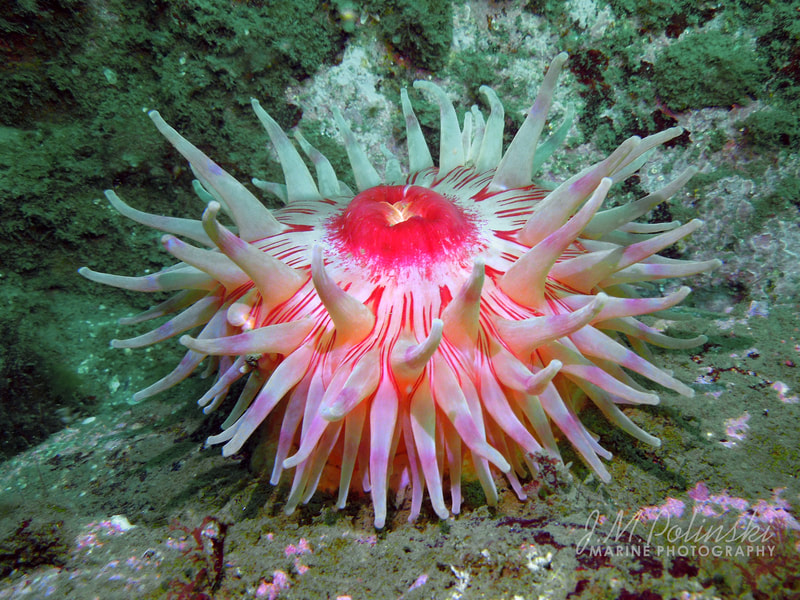
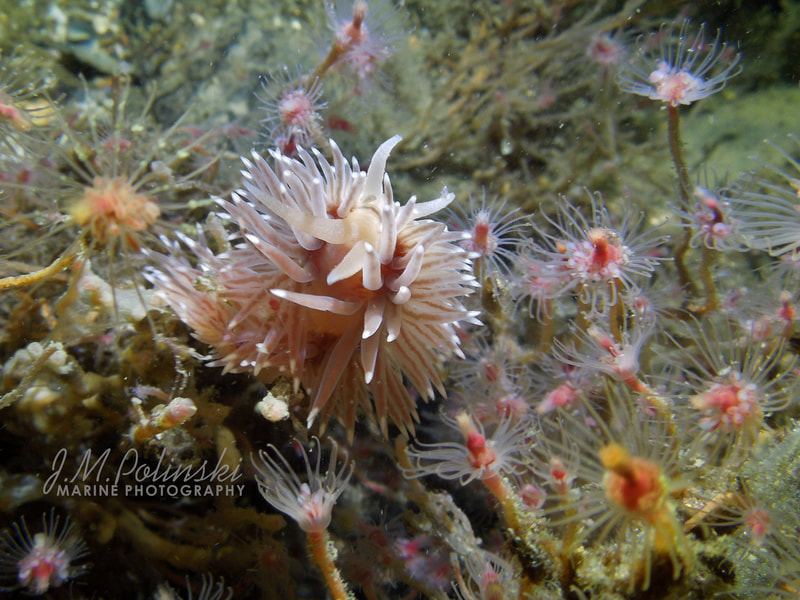
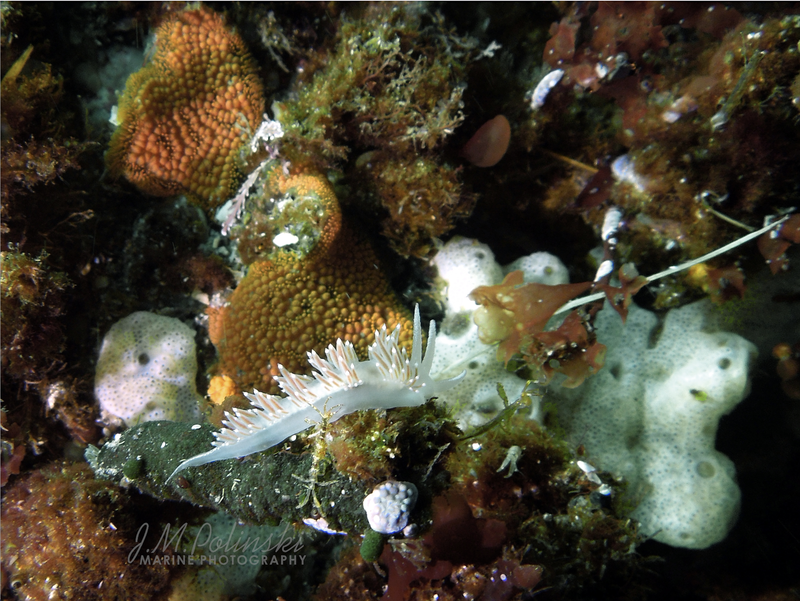
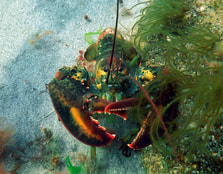
Lobsters
"Consider the American lobster—a bottom-dwelling crustacean that lives up to 100 years in the wild. Scientists have long wondered at its astonishing longevity: Lobsters do not grow weaker with age and only rarely suffer from cancers. Now, researchers have published the first high-quality draft of the lobster genome, yielding surprising insights about the animal's immune system and genomic stability that may one day help answer fundamental questions about aging—not only in lobsters, but also in humans."
Read the full science.org article
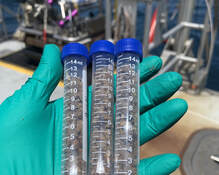
Ecosystem-Wide Biodiversity
"If we want to understand marine ecosystems, not just individual species, we need to look at everything from the largest whales to the smallest bacteria, how they interact, and how community composition changes over time and in response to human-induced stressors like climate change. Fortunately, we don't need to actually see organisms to document their presence. Using environmental DNA (eDNA), we can capture a snapshot of the entire community using just a gram of sediment or liter of seawater"- Jennifer Polinski
Learn more here
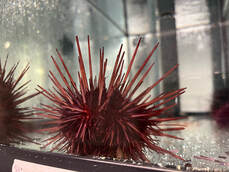
Sea Urchins
"At GMGI, we are using sea urchins as models to unlock the genetic secrets of living a long and healthy life. Some species of sea urchins can live to extraordinary old ages (more than 100 years) with life-long growth and reproduction, no evidence of age-related decline, and no reported cases of cancer. Because sea urchins share a close genetic relationship with humans, they are ideal models to investigate the molecular and cellular pathways contributing to longevity and disease resistance with direct relevance to human health."
Read the full GMGI article
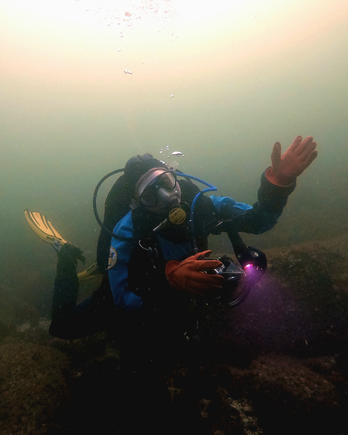
Photo credit: Jon Heimbach
Following a SCUBA dive in Maui (HI), Jennifer Polinski knew that she would go on to become a marine biologist. She was 10 years old and was on a family vacation. She stayed course and later moved from her home state of Michigan to Florida and then Massachusetts.
Originally a warm water diver, Jennifer Polinski did not expect to dive locally when she moved to Massachusetts.
She gives much credit to the "active and welcoming New England dive community". She dives locally year-round, with nearly half of her 200+ logged dives in New England! Follow Jennifer Polinski:
GMGI Mission
Gloucester Marine Genomics Institute addresses critical challenges facing our oceans, human health and the environment through innovative scientific research and education. By bringing world-class science and transformative workforce development to Gloucester’s historic waterfront, GMGI is catalyzing the regional economy.

